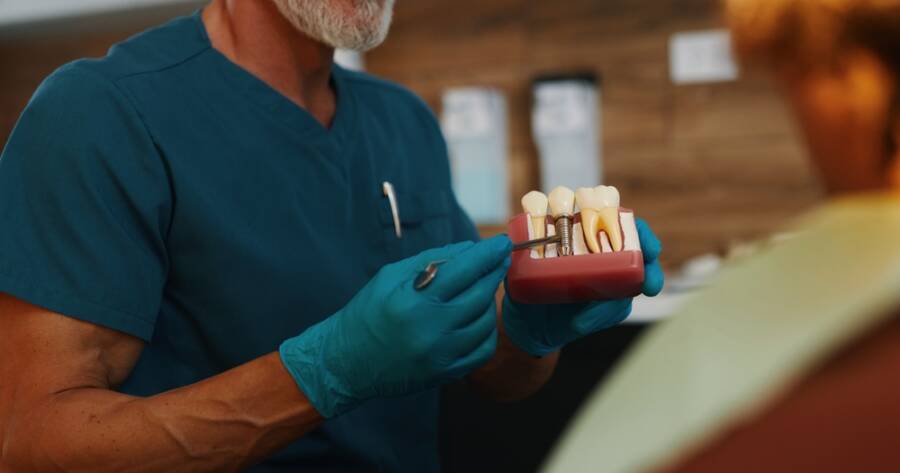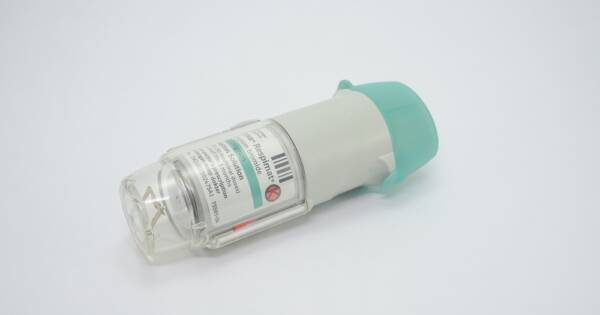If you’re considering dental implants but are hesitant about the cost or unsure if they’re the right solution for you, clinical trials could be a great opportunity. Clinical trials for dental implants are available in the UK, offering participants the chance to receive high-quality dental care at a reduced cost or sometimes even for free, with the added benefit of financial compensation for their time and participation.
What Are Dental Implants?
Dental implants are artificial tooth roots made of materials like titanium that are surgically placed into the jawbone. Over time, they fuse with the bone in a process called osseointegration, creating a stable base for artificial teeth (crowns). Dental implants are a permanent solution for missing teeth, providing a more natural appearance and improving speech, chewing ability, and overall oral function.
While dental implants are widely regarded as the best solution for replacing lost teeth, the procedure can be expensive, and not all insurance plans fully cover the cost. This has led many people to explore alternative options, such as clinical trials, to access implants at a lower cost or even free of charge.
Why Participate in a Dental Implant Clinical Trial?
Participating in a dental implant clinical trial offers several key benefits, including:
- Access to Professional Dental Care: Clinical trials allow participants to receive high-quality dental implants and care under the supervision of skilled professionals. This can be an excellent opportunity for individuals who may not have access to affordable dental care otherwise.
- Cutting-Edge Treatments: Clinical trials are designed to test new technologies, procedures, and materials. Participants may have access to the latest advancements in dental implant technology, which can lead to more effective, longer-lasting results.
- Financial Compensation: Many clinical trials offer compensation for your time and participation. The amount varies depending on the trial, but it can help cover travel expenses, time off work, or other related costs. This makes it a win-win situation for those seeking dental implants at an affordable price while contributing to medical research.
- Personal Contribution to Medical Research: By participating in a clinical trial, you are helping researchers gather valuable data that could improve dental implant technology in the future. Your participation could potentially help others by advancing knowledge in dental care.
Eligibility for Dental Implant Clinical Trials
Each clinical trial has specific eligibility requirements, which may vary depending on the research objectives. Typically, trials look for participants who are in good general health and have specific dental needs, such as missing teeth or requiring implants for cosmetic reasons. Some trials may also have age restrictions or other criteria to ensure the safety and validity of the research.
To find out if you qualify for a dental implant clinical trial, it’s best to reach out to research centers, universities, or dental practices that conduct such studies. They will be able to provide more information on the trial’s requirements, the procedure, and the compensation available.
What to Expect During a Clinical Trial
If you qualify for a dental implant clinical trial, you will likely undergo several stages of the study. Initially, you will be assessed to determine your eligibility, including a detailed medical examination and dental evaluation. If accepted, you may have to attend multiple visits throughout the trial, including the surgery to place the implants, follow-up appointments to monitor progress, and final assessments to ensure that the implants are functioning as expected.
During the trial, you will be closely monitored by dental professionals to ensure your safety and the success of the implants. You may also be asked to report any side effects, changes, or concerns during the study period.
Risks and Considerations
While participating in a clinical trial offers many benefits, it’s important to understand that there may be some risks involved. As with any medical procedure, dental implants can result in complications such as infection, implant failure, or adverse reactions to anesthesia. Additionally, since clinical trials often involve new treatments or technologies, there may be some uncertainty about the long-term effectiveness of the procedure.
It’s important to discuss these risks with your dentist or the clinical trial coordinator before making a decision to participate. They will provide you with detailed information about the study, including any potential risks and benefits, so that you can make an informed choice.
Access Affordable Dental Implants and Contribute to Medical Research Through Clinical Trials
If you’re considering dental implants but are concerned about the cost or the procedure’s long-term effectiveness, a clinical trial could provide an excellent opportunity to receive top-tier dental care at a reduced price or for free, with the added benefit of compensation for your time. Participating in a dental implant clinical trial not only gives you access to cutting-edge treatments but also helps contribute to the advancement of dental care. To get started, reach out to research centers, universities, or dental practices offering these trials to find out if you qualify and learn more about the process. This could be your chance to get the smile you’ve always wanted while helping improve dental care for others.




